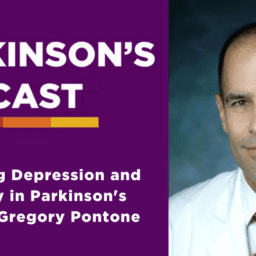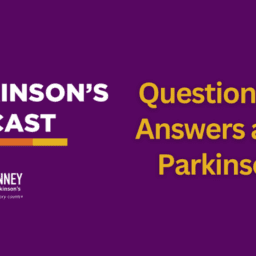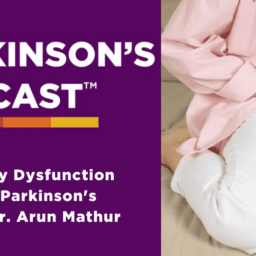People with Parkinson’s, their families, and their care partners often want a way to measure how much their Parkinson’s has advanced. This interest often becomes much more significant as Parkinson’s progresses and the issues one faces become more complicated.
This urge is reasonable. Understanding how advanced your Parkinson’s is can provide general clarity about how things are going and inform treatment decisions. This understanding is also relevant to other critical aspects of your care plan, including when you may become eligible for disability or other governmental social support programs. It may also factor in when you and your family consider longer-term, out-of-home care.
Defining advanced Parkinson’s through scales
Unfortunately, there is no universal agreement about what defines “advanced Parkinson’s.”
One common understanding is that advanced or late-stage Parkinson’s is when Parkinson’s severely impacts your ability to complete activities of daily living (ADL) independently.
ADLs include standing, moving around your home, getting dressed, eating, and bathing. There are also additional relevant activities, often called instrumental activities of daily living (IADL), that can factor in determining how advanced Parkinson’s is for you and how severely you are affected by it. IADLs include more home management-type tasks, such as cooking, cleaning, doing laundry, and paying bills.
Difficulties with existing rating scales in defining stages
The common understanding above is concise and useful but isn’t comprehensive. Also, while there are rating scales to evaluate ADLs and IADLS, they are not scales your doctor will likely use during a visit. Two of the most common scales doctors use in evaluating Parkinson’s are the MDS-UPDRS and the Hoehn and Yahr scale. Each of these can be used to evaluate how advanced Parkinson’s is.
The MDS-UPDRS scale assigns a numerical value to various symptoms and experiences of living with Parkinson’s. The more significant or disruptive a symptom/experience is for a person, the higher the number assigned to it. The higher the cumulative total, the more advanced Parkinson’s is. Importantly, there is no universal agreement on what MDS-UPDRS rating value would represent “advanced Parkinson’s.”
The five-stage Hoehn and Yahr scale is more precise: stages four and five of Hoehn and Yahr correspond to “advanced Parkinson’s.” In an early publication of the Hoehn and Yahr scale, stage four is described as fully developed, severely disabling Parkinson’s, with which a person can still walk and stand unassisted despite being “markedly incapacitated.” A person in stage five is described as being confined to a bed or wheelchair unless they are assisted. Although the Hoehn and Yahr scale defines advanced Parkinson’s more clearly than the MDS-UPDRS, it provides a less detailed view of common symptoms in advanced Parkinson’s because its ratings are based primarily on mobility.
New staging proposals
Because of these deficiencies in the existing rating scales, researchers continue discussing ways to improve how Parkinson’s is evaluated and progression is defined.
For example, in a 2017 article, researchers made a case for reformulating advanced Parkinson’s as complex Parkinson’s. The authors note that advanced Parkinson’s “remains controversial and unclear” and “relates to the complex pathophysiological process involving dopaminergic and non-dopaminergic pathways that underlies Parkinson’s.” These authors argue that as more parts of the brain are more severely affected, treating and living with Parkinson’s becomes more complex. Their proposed approach is a more useful marker than a high MDS-UPDRS score for determining how advanced a person’s Parkinson’s is.
Another discussion about defining stages of Parkinson’s involves proposals for a new staging system using more reliable measurements of biological samples. This system relates to the biomarker research published earlier this year.
Defining symptoms of advanced Parkinson’s
Some researchers have taken a different approach to help clarify advanced Parkinson’s. In 2017, Spanish researchers surveyed 240 neurologists about what symptoms define advanced Parkinson’s.
The survey asked the neurologists to use a four-point scale to rate how a given Parkinson’s symptom corresponded with a diagnosis of advanced Parkinson’s. Only care providers who treated at least ten people with Parkinson’s each year were eligible to participate in the survey, and over two-thirds of the participants treated 100 or more people with Parkinson’s each year.
From this survey, the researchers made three lists of symptoms:
- Symptoms definitive of advanced Parkinson’s
- Symptoms probably indicative of advanced Parkinson’s
- Symptoms possibly associated with advanced Parkinson’s
Symptoms definitive of advanced Parkinson’s, even in isolation:
- Requiring help to perform activities of daily living
- Having motor fluctuations more than 25% of the time
- Severe swallowing difficulties
- Recurrent falls
- Dementia
Symptoms that probably correspond to advanced Parkinson’s:
General characteristics
- Living with Parkinson’s for ten years or more
Disability
- Significant limitations in activities of daily living, even if the activities don’t require help
Motor symptoms related to treatment
- Functional disability due to dyskinesia
Motor symptoms related to the progression of Parkinson’s
- Freezing of gait
- Moderate swallowing difficulties
- Moderate to severe speech difficulties
Neuropsychiatric and cognitive symptoms
- Persistent hallucinations
Notably, most survey participants thought that if a person experienced a symptom in more than one of the categories above, this was definitive evidence of advanced Parkinson’s.
Symptoms that possibly correspond to advanced Parkinson’s:
- Postural and equilibrium disorders
- Autonomic disruption, including orthostatic hypotension and excessive daytime sleepiness
- Moderate-to-severe apathy
- Psychotic symptoms
- Mild cognitive impairment
Complications and care strategies for advanced Parkinson’s
Understanding the symptoms of advanced Parkinson’s is only part of the story. Many of the symptoms described above are associated with significant complications and worsened quality of life due to a wide variety of additional symptoms. Fortunately, there are often strategies that can help if you face the following complications.
Swallowing difficulties
The most important thing you can do to address swallowing difficulties is to see a speech-language pathologist. These care providers can help you understand optimal body position for swallowing and teach special swallowing techniques like the supraglottic swallow maneuver, the super supraglottic swallow maneuver, and the Mendelsohn maneuver.
Other possible interventions to help are Lee Silverman Voice Training (LSVT) and expiratory muscle strength training. All these techniques can help reduce the risk of aspiration and aspiration pneumonia, a significant cause of death for people with Parkinson’s.
Because swallowing difficulties can lead to weight loss, it is also essential to see a nutritionist, check nutrient levels, and ask about dietary changes and possible foods that may be easier to swallow.
Research indicates that swallowing difficulties may not respond well to dopaminergic treatment and that some deep brain stimulation (DBS) lead placements and program settings can adversely affect swallowing function. If you have DBS and have difficulty swallowing, it’s a good idea to seek care from a speech-language pathologist, talk with a physical or occupational therapist, and talk with your provider about your DBS programming settings.
Falls
As Parkinson’s progresses, falls become more prevalent. A 2019 review of research reports that up to 68% of people with Parkinson’s fall at least once each year, and over half of those people experienced recurring falls. Other studies report higher rates.
Falls represent a significant risk for people with Parkinson’s (and the entire aging population) as they can lead to fractures, head injuries, and hospitalization. Inability to complete basic tasks of daily living, fear of falling, and caregiver injury are also consequences of falls.
It is vital to be proactive about fall prevention. The most essential management strategy for home life is to talk with an occupational therapist for help with home modifications like installing grab bars and removing obstacles. Other essential strategies include maintaining adequate hydration to work against dizziness when standing and using assistive devices to help stabilize balance, such as poles or walkers, when needed.
Slowed gastric emptying
Parkinson’s affects the muscles in the digestive system and the muscles in the rest of the body similarly: just like your arm movements get slower and less “big,” your digestive muscle contractions may slow down and diminish in force, especially as Parkinson’s progresses. This can negatively impact oral medication absorption. Read more about this topic here.
Note for many people in the later stages of Parkinson’s, advanced therapy like DBS or the Duopa are useful workarounds for medication absorption issues, but note that advanced age and cognitive issues can be contraindications for the surgeries associated with these therapies, so it’s important to plan ahead.
Neuropsychiatric symptoms
A 2020 study found that 92% of people with late-stage Parkinson’s have at least one neuropsychiatric symptom like depression, apathy, anxiety, psychosis, or behavioral problems. A 2022 study found that psychosis in advanced Parkinson’s is as high as 60%. Typically, psychosis presents as hallucinations, but it may also involve delusions.
Treatment of neuropsychiatric symptoms can be complex, in part because of contraindications between common psychiatric medications and some Parkinson’s treatments. Some psychiatric medications may also worsen motor symptoms.
Moreover, symptoms like depression, apathy, and anxiety may improve with dopaminergic treatment, while psychosis and behavioral symptoms might worsen. For these reasons, it’s important to seek advice and care from a movement disorder specialist or neuropsychiatrist familiar with Parkinson’s treatments and side effects. Management of these symptoms is critical because they are associated with increased hospitalization rates, placement in long-term care facilities, and mortality.
Parkinson’s disease dementia (PDD)
Authors of a 2020 study wrote that the most common presentations of Parkinson’s dementia include “impaired attention and concentration, poor executive function and planning, difficulty with multi-tasking or initiating activity, short-term memory impairment and poor visuospatial function.” The authors also noted that 75% of people with Parkinson’s will develop Parkinson’s dementia while living with Parkinson’s.
The severity of Parkinson’s dementia varies, and there is currently only one FDA-approved pharmaceutical treatment for Parkinson’s dementia: rivastigmine. Rasagiline has also shown some positive impact on cognitive issues faced by people with Parkinson’s. Other possible interventions include cognitive therapy, physical activity, and music or art therapy. Still, there is limited research into the efficacy of these interventions, and there is also a need for more consensus on how best to evaluate the outcomes of these studies, as discussed by the authors of this 2016 article.
Severe constipation
While constipation is a common early symptom of Parkinson’s, it can also become more problematic as Parkinson’s progresses. Research from 2019 found that decreased walking is often associated with significant increases in the severity of constipation, so as your mobility decreases, your constipation may increase. This is another good reason to get active early and keep moving as much as possible!
In addition to remaining mobile, which can be difficult as Parkinson’s advances, there are other possible treatments. These include dietary adjustments, drinking more water, abdominal massage, probiotic supplementation, and laxatives. Botulinum injections can also be helpful.
Unfortunately, no extensive studies are comparing the evidence and efficacy of different treatments for severe constipation in Parkinson’s, and some common approaches, such as drinking more water, can be challenging to implement because of other issues. Working closely with your care team to manage constipation and your specific circumstances is important.
Urinary dysfunction
Urinary urgency and increased frequency are common in Parkinson’s. While genuine urinary incontinence is less common, it does occur more frequently in advanced Parkinson’s. Treatment for urgency and incontinence includes medications, exercises to improve muscle function, and surgical interventions.
Additionally, whether you are living with increased frequency or incontinence, decreased mobility can lead to complications when good hygiene is not maintained. Additionally, keeping up with increased bathing and cleaning needs can contribute to significant care partner strain.
Care partner strain
All the symptoms highlighted above can increase strain on Parkinson’s care partners. Having a care partner who is healthy and thriving can dramatically improve your quality of life, so it is also important for your care partner to manage these stressors. One key strategy to manage care partner stress is to avoid social isolation. Care partners are always invited to join our monthly Care Partner Meetup, and we encourage all care partners to consider joining a local support group and to prioritize self-care as often as possible.
Other strategies for care
Living with and treating advanced Parkinson’s is challenging. And the gaps in understanding of best practices for managing complications are frustrating. This is why we recommend building a care team early in your time living with Parkinson’s: if you have a strong team, you have a robust network of providers who are familiar with your experience of Parkinson’s and are prepared to help when your circumstances become complex.
Fortunately, around the world, researchers, people with Parkinson’s, and care partners are actively shining light on the most challenging aspects of advanced Parkinson’s, and progress is being made. There are reasons for hope!
Now, though, in addition to the strategies above, there are additional actions you can take to help improve life today.
- Participate in trials when they are available to you. Ask your care team and the staff at movement disorder centers if there are any appropriate trials in your area and check clinicaltrials.gov. Trial participation is an excellent way to help improve care in the future, but it also helps you have more frequent contact with expert care providers now.
- Be prepared for possible hospitalizations, and ensure your advance directive is in place.
- Access palliative care resources, and do it early. Understand that palliative care is more than just hospice care.
- Talk with an occupational therapist as early as possible to help make your home safe. This will help you remain in your home as long as possible.
- It’s also a good idea to have candid conversations as early as possible with your care team regarding the situations or milestones that may require in-home help or long-term care facilities.
One of the most important things you can do to live well as Parkinson’s progresses is to seek support. Participate in support groups, and do so early in your Parkinson’s journey. This can be the difference between thriving and just getting by, at every stage.
Also, know that we are here for you. Consider joining us for our Living with Parkinson’s and Care Partner Meetups, and contact us at blog@dpf.org if you have questions or need additional support.
Additional Resources
Tips for Alleviating Bowel and Urinary Complications
Breathing and Swallowing Victory Summit Presentation
Treatment Options for Parkinson’s Psychosis and Parkinson’s Dementia
International Neuropalliative Care Society
American Speech-Language-Hearing Association resources about swallowing
Treatment of Advanced Parkinson’s
THANK YOU TO OUR 2023 PEAK PARTNER SPONSORS
*While the generous support of our sponsors makes our educational programs available, their donations do not influence Davis Phinney Foundation content, perspective, or speaker selection.
WANT MORE PRACTICAL ARTICLES LIKE THIS?
You can learn much more about living well with Parkinson’s today through our Every Victory Counts® suite of resources. Each manual is packed with up-to-date information about everything Parkinson’s. Click the link below to order your manual(s).
Thank you to our 2023 Peak Partners, AbbVie, Amneal, and Kyowa Kirin and our Every Victory Counts Gold Sponsor, AbbVie Grants, for their ongoing support of these must-have manuals. Additionally, we’d like to thank Barbara and Dale Ankenman, Abby and Ken Dawkins, Bonnie Gibbons, Gail Gitin in loving memory of Gene Gitin, Irwin Narter, and Lorraine and J Wilson for their generous donations that allow us to make these resources available and free to all.



















